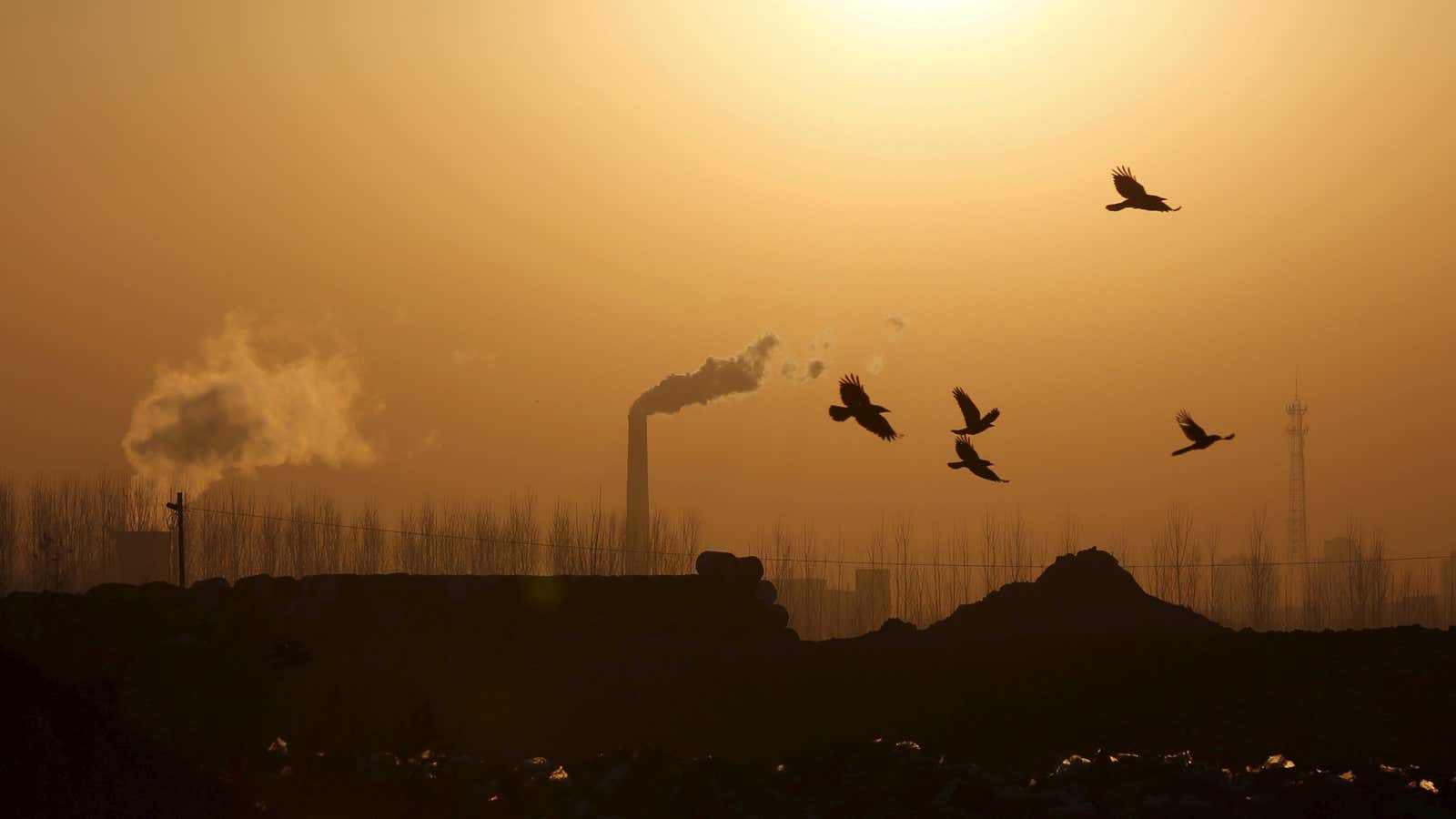When it comes to climate change, the world is on two different timelines. Since 1988, or even the 1890s, scientists have said (with increasing urgency) that eliminating greenhouse gas emissions will be essential to avoid a warming climate. Until recently, lawmakers responded with the policy equivalent of, “We’ll deal with this later.”
A new study from the nonpartisan energy policy firm Energy Innovation places a precise dollar figure on the cost of procrastination. The group analyzed the cost to the US economy of waiting 10 more years before passing policies to reach net-zero emissions by 2050. Their peer-reviewed model examined the annual costs of replacing fossil fuels with clean energy for transportation, electrification, industry, and building in the US.
“The upshot is the next decade is critical,” the report concludes. “The longer we wait, the more drastic the cuts—and associated costs—will be.”
If action begins in 2030, the cost of transitioning to a clean energy economy will be an estimated 75% higher than if action were to begin this year 1. That works out to roughly $750 billion each year in the 2030 scenario (for a total of about $8 trillion), compared to peak costs of $320 billion per year if early action is taken (for a total of $4.5 trillion). Notably, if we only focus on the power sector, we’ll save money by phasing out fossil fuels.
Those estimates are roughly in line with other studies in the scientific literature that show costs go up faster the later climate initiatives begin. Every year of delay means more fossil fuel facilities will need to be retired early, and more clean energy deployed annually, to meet the same target, says Zeke Hausfather, director of climate and energy at technological research group Breakthrough Institute.
For example, the Energy Innovation report finds that delaying climate policies until 2030 means building nine times more renewable energy capacity per year by the mid-2030s. This is likely to lead to a “global economic shock,” the report’s authors state.
The problem is physics. The world keeps emitting carbon dioxide. Just as a bathtub fills up with water, our atmosphere is filling up with added CO2 from human activities. A business-as-usual scenario means CO2 levels will exceed four-times pre-industrial levels by 2100—far above what is compatible with a stable climate. Slowing and stopping warming means eliminating emissions and removing CO2 from the atmosphere. Even in a best-case scenario, temperatures and sea level will continue to rise for centuries after an emissions peak.
Policymakers may finally be getting the message. Last year, the European Union announced plans to eliminate net emissions by 2050, and several member states have passed this target into law. In the US, the Biden administration’s new climate plan will zero out greenhouse gas emissions from the power sector by 2035, on the way to net-zero emissions nationwide no later than 2050. Policymakers’ intent is also driving corporations, responsible for most of the world’s emissions, to move ahead of the coming regulations. At least 1,100 companies have voluntarily adopted emission targets, according to the Science Based Targets initiative, about a third of which plan to meet the 1.5°C target set by the Paris Agreement.
“I’m very optimistic by the policy goals being discussed today,” says Megan Mahajan, a co-author of the report and senior policy analyst at Energy Innovation. “They are the goals needed to get us on the path to net-zero emissions.”
